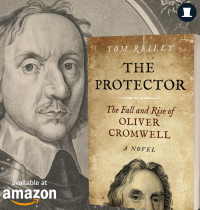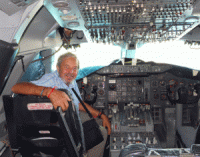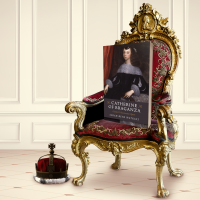
This compelling memoir of a girl in uniform reveals first-hand experience of the social attitudes towards women in post-war Britain.
A fascinating look into life in Britain on the brink of the 'Swinging' Sixties. Well-bred, conventional young ladies still wore gloves and hats, while among them a rare few, more adventurous, rejected the stereotypical careers expected of them and chose a life in the armed forces, with all its considerable challenges. In this coming-of-age story written from the heart, the author relates her life, loves, heartbreaking loss, and her military career. I found it an engrossing read and valuable social history record that took me back on a wave of nostalgia to a bygone era. - Susie Kelly, author of I Wish I Could Say I was Sorry
HIGH HEELS & BEETLE CRUSHERS
From childhood, I have always loved the written word, discovering books a permanent source of pleasure. Aged 10, poetry became my first foray into creative writing. I remember reading one of my poems to the whole class, encouraged to produce more by my English teacher.
Here is one I scribbled while writing High Heels & Beetle Crushers:
Follow me down the halls of time,
Secret places where memories hide.
They whisper, jostle, march in line,
Senses explode, colours collide.
And did we lie in slow time?
And did we dance to ragtime?
And did we speak in real time?
Recaptured memories.
This year is the 70th anniversary of the formation of the Women’s Royal Army Corps. Founded in 1949 and disbanded in 1992. I owe a great deal to the Corps and by retelling the story of my military career, I also reflect the post war era. A time of change in politics, fashion, music, attitudes towards women and social etiquette.My memoir captures the experiences of a young woman, seeking an exciting career. Be prepared to share romances, heartache, adventures, laughter and tears as I navigate a path to womanhood, at a time when the Cold War overshadowed the western world.
I would highly recommend this book if you’re looking for a compelling, entertaining and quick read. It will make you laugh, make you angry, make you fight tears, but it will also teach you things and make you think. I would also recommend it for fans of things like Call The Midwife or Land Girls. I don’t read many memoirs but I’m glad I read this one and can’t wait for the follow up. - Emma Shaw (Reviewer)
Women in the modern army have taken their place alongside men. They fight on the front lines and are able to serve in all branches of the army. As female officers in training, we undertook the correct military procedures to take over the role of men in time of war, allowing them to go forward to fight. But also, we received flower arranging and make up demonstrations as befitting young ladies. The modern female officer is drilled in the use of firearms, can hold her own, solely dependent on her abilities to make the grade, whether as a helicopter pilot, commanding a battalion of men or stationed with elite regiments such as the Parachute Regiment or Special Air Service.
Seventeen officer cadets arrived at the WRAC School of Instruction in January 1961. A wooden hutted camp on Bramshott Common, Hindhead. In the same month, 200 male officer cadets reported for their training at The Royal Academy Sandhurst, a magnificent establishment built in extensive grounds. It was not until 1982, courses were combined, thanks to the persuasive power of Colonel Annie Field WRAC, mentioned in my book.
We, the 1961 band of sisters, continued to tread the pioneering path of the Women’s Auxiliary Army Corps and the Auxiliary Territorial Service who preceded us, marching with pride in our new uniforms into the future.
Extract from Chapter 9 Officer Cadet Wing, January 1961
The anteroom door stood open and, to my delight, I saw Elaine chatting to Wendy and Lesley. I rushed over to exclaim my congratulations.
‘I knew you’d pass RCB!’ I declared, laughing in relief.
As I remember them from those days, Elaine already wore the mantle of a leader. She, Wendy and Lesley were to become my comrades, pivotal to my well-being at Cadet Wing. Elaine, self assured, full of fun, and because she was shorter than us, held her head high. Flicked out hair framed an open face and blue eyes. Wendy, slim and almost as tall as me, walked like a model. Nothing fazed her, she attacked every situation with humour and was to remain one of my lifelong friends. Lesley, the mother hen, had a curvy figure, masses of curly hair and possessed a gentle nature. I don’t know how I would have survived without her support, given what was to come. We would all spend the next year together – and even better, they were billeted in hut fifty-one. My spirits rose knowing we would be sharing our experiences as cadets in that grim camp.
The story unfolds to reveal how we became young officers in that grim camp. How I found a way forward after a heartbreaking experience, to rediscover the path to adventure...
Order your copy today from wherever books are sold or from the link at the end of this article.
This is a beautifully written, honest memoir, where hard work, heartache and happiness all play a part, and it left me keen to read more - Jacqueline Brown French Village Diaries
About the Author
For Jackie Skingley, adventure has been her quest since childhood. Life with the British army allowed Jackie to live all over the world and gain huge appreciation for different cultures and customs. Since 1999, Jackie and her husband have lived in the Charente region of South West France where Reiki, jewelry making, painting and mosaics, as well as writing keep her fully occupied.
COMING SOON
Click cover for more informationCategories:
0 comments on this article













